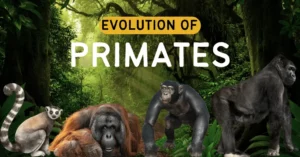AI Answer Evaluation Platform Live Now. Try Free Answer Evaluation Now
Computer Languages and Humankind
The evolution of human society has witnessed various language transformations. From primitive pictorial symbols to complex programming codes, the dialogue between humans and machines has become an integral part of our lives. These novel languages, aptly termed ‘computer languages’, have reshaped human interactions and cognition, warranting exploration through a linguistic anthropological lens [1].

History and Evolution of Computer Languages
The Dawn of Programming Languages
In the early 1940s, humans started to converse with machines using Assembly language, an elementary yet low-level language that could manipulate the machine’s hardware directly [2]. From this beginning sprouted an intricate tree of languages, branching into high-level languages like Fortran (1957), Cobol (1959), and Basic (1964), and further diversifying into modern languages such as Python, JavaScript, and Swift.
Table 1: Historical evolution of computer languages
| Year | Language |
|---|---|
| 1940s | Assembly |
| 1957 | FORTRAN |
| 1959 | COBOL |
| 1964 | BASIC |
| 1980 | C++ |
| 1995 | JavaScript |
| 2000 | C# |
| 2014 | Swift |
| Ongoing | Various |
Modern Diversity in Computer Languages
Contemporary computer languages can be grouped into procedural, object-oriented, functional, and scripting languages, each with unique syntax and semantics.
- Procedural languages (e.g., C, Go) emphasize a step-by-step operational approach.
- Object-oriented languages (e.g., Java, Python) encapsulate data and functions into objects.
- Functional languages (e.g., Haskell, Lisp) focus on mathematical functions.
- Scripting languages (e.g., JavaScript, Ruby) automate tasks within software environments [3].
Influence on Humankind
Transformation of Communication
Computer languages, in essence, are tools of communication. While traditional languages enabled human-to-human conversation, computer languages bridged the communication gap between humans and machines. They facilitated the construction of digital platforms, fostering global connectivity and reshaping human interactions [4].
Cognitive Impact
Learning computer languages influences cognitive processes. Several studies show that programming language learners demonstrate improved problem-solving skills, logical thinking, and creativity [5]. It reinforces the cognitive aspects associated with mathematics and formal logic.
Career Advancements
With the rise of digital economies, mastery of computer languages has become a sought-after skill. It facilitates career advancements in various fields, including software development, data science, artificial intelligence, and cybersecurity.
Anthropological Insights
Language Universals
Analogous to Chomsky’s theory of universal grammar in human languages, computer languages exhibit universals in their structures and principles. They all follow a syntax (structural rules) and semantics (meaning), creating a universal machine language.
Language, Culture, and Society
Computer languages reflect the characteristics of the societies that produce them. For example, languages like Python, advocating for readability and simplicity, mirrors a societal emphasis on accessibility and inclusivity.
Power and Hierarchy
Like traditional languages, computer languages reflect societal power dynamics. English-based keywords dominate programming languages, reflecting the hegemonic influence of English-speaking societies in the digital world.
Anthropological Implications of Computer Languages: Beyond Coding
The Digital Divide
Despite the universality of computer languages, their access and understanding are unevenly distributed. This digital divide mirrors societal inequalities, often barring disadvantaged populations from harnessing the benefits of digital fluency. In this light, computer languages aren’t just tools; they’re also a form of capital, holding implications for socioeconomic mobility.
Gender Dynamics in Programming
Computer languages are not gender-neutral; they exist within a sociocultural context marked by gender biases. The underrepresentation of women in computer science and programming has sparked debates on the gendered nature of computer languages and their pedagogical practices. Efforts are being made to create more inclusive programming languages and learning environments.
Language Preservation and Loss
As new computer languages evolve, older ones become obsolete, mirroring language extinction in human societies. While this extinction is viewed as technological progress, it often results in the loss of unique programming paradigms. The preservation of older computer languages, akin to endangered human languages, is thus an anthropological concern.
Future Perspectives
Quantum Programming Languages
Quantum computers, the next frontier in computation, require new programming languages. Q# by Microsoft and Qiskit by IBM are examples of quantum programming languages. These languages, currently in nascent stages, are expected to revolutionize human-machine interaction.
AI and Natural Language Processing
With advances in artificial intelligence (AI), the intersection of human languages and computer languages is becoming more seamless. Natural language processing, a field of AI, aims to teach computers to understand human languages, narrowing the communicative gap between humans and machines.
Conclusion: The Recursive Loop
The relationship between computer languages and humankind forms a recursive loop. As we shape these languages, they, in turn, shape us – our cognition, interactions, and society. By understanding this symbiotic relationship, we can better navigate the digital age, fostering inclusivity, equality, and progress.
References
[1] Duranti, A. (2001). Linguistic Anthropology: History, Ideas, and Issues.
[2] Lohr, S. (2015). The Evolution of Programming Languages.
[3] Sebesta, R. (2012). Concepts of Programming Languages.
[4] Crystal, D. (2001). Language and the Internet.
[5] Kalelioglu, F., Gülbahar, Y., & Kukul, V. (2016). A snapshot of computer programming students’ problem-solving and knowledge construction processes.




